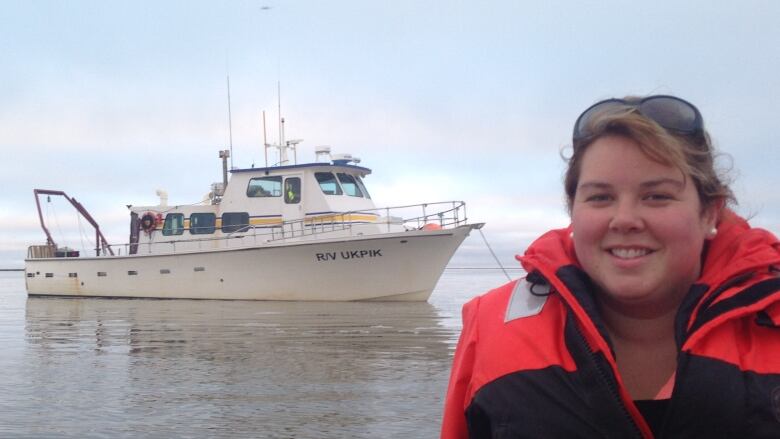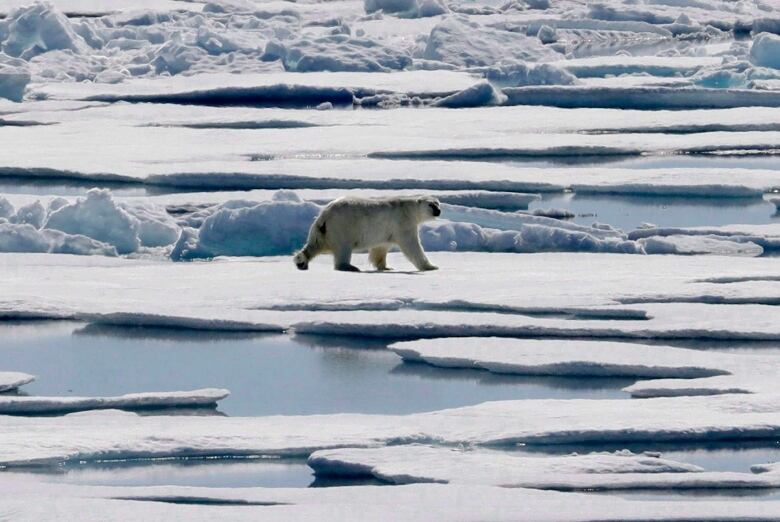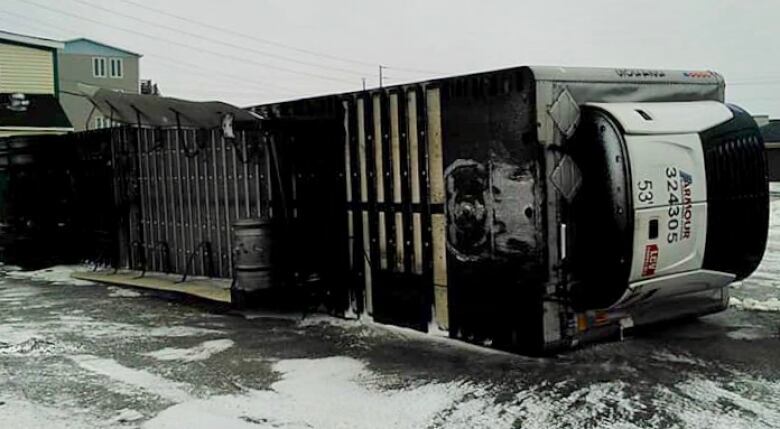Climate change isn't necessarily all doom and gloom for Newfoundland and Labrador
'Doom-and-gloom' view on climate change is one-dimensional and unproductive, say local researchers

First, a disclaimer: overall, climate change has a negative impact on global ecosystems, biodiversity, and economy.
Many species are going extinct, and many humans are being displaced with more to follow.
But change is change, and where there are those who lose, there will be those who win andNewfoundland and Labrador may be a winner.
I've never had a conversation with any Arctic communities that say that there isn't change occurring.- Rachel Sipler
Climate change is here and it's happening. It's not an apocalyptic event that will envelop the world in catastrophe, la disaster-flick The Day After Tomorrow. From a human perspective, it's a slow, long-term change in global climate patterns; this is partly why some people have trouble recognizing it as a real phenomenon.
Rachel Sipler, a Canada Research Chair in ocean biogeochemistry and assistant professor at Memorial University, says that in Arctic communities people are more connected to the land, and there is little doubt over climate change.
Coastal erosion, melting of permafrost
"I've never had a conversation with any Arctic communities that say that there isn't change occurring," said Sipler.
"There are a number of communities where I primarily study, in Alaska, that have actually had to move where their villages were because of changes in their environment."
Coastal erosion, melting of permafrost, and changes in hunting and fishing grounds are having profound effects on arctic life.

But the "doom-and-gloom" view on climate change is one-dimensional and unproductive, says Sipler.
"We're not going to stop climate change. It's going to happen," she said. "But we can move forward to take advantage of it, and decrease the potential effects that could come in the future."
Sipler urges us to monitor the changes, predict their impact, and plan accordingly. Instead of focusing on past fisheries, we need to focus on what the future fishing grounds will look like. When building infrastructure we need to consider how the land will change over the next 100 years.
"Let us not fall in 10 years because we picked the wrong industry. Let us plan for the 20-year plan where we are ready to take advantage of everything that's coming our way. And I just see that as a really positive outlook instead of a negative outlook."

In Newfoundland, some predicted changes will be more frequent mild/wet winters, increased winds, and changes in the species in our waters.
Amanda Bates,a Canada Research Chair in marine physiological ecologyand associate professor in Memorial's Ocean Sciences Centre, agrees with Sipler. She said the winners will anticipate changes and adapt to reap the benefits of new environmental conditions.
Interesting opportunities
"Newfoundland is poised at the edge of a cold and warm water current. It could be that there's some really interesting opportunities that arise as we get a real change in our system and we have some relatively warmer water species moving into this area."
Bates said that the most important thing is that the livelihoods and well-being of people are protected, and one way to do that is to focus on developing sustainable income sources.
While climate change is already happening, the rate and how far it progresses is still somewhat up to us. Slowing down the changes will mean life on earth, including humans, will have time to adapt to a new environment.
So even though we should be predicting the benefits and taking advantage of them, climate change prevention efforts are still a vital investment in our global future.












_(720p).jpg)


 OFFICIAL HD MUSIC VIDEO.jpg)
.jpg)



























































































